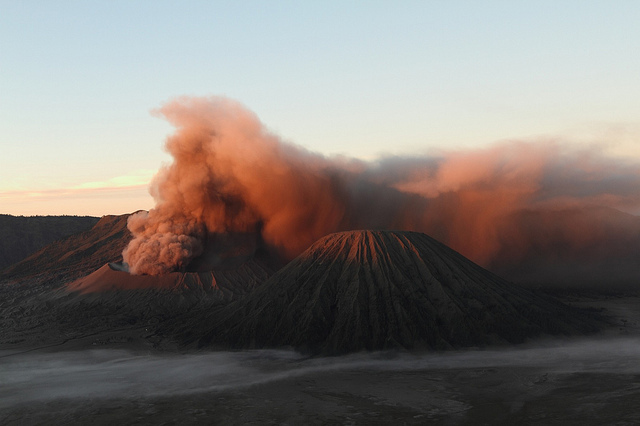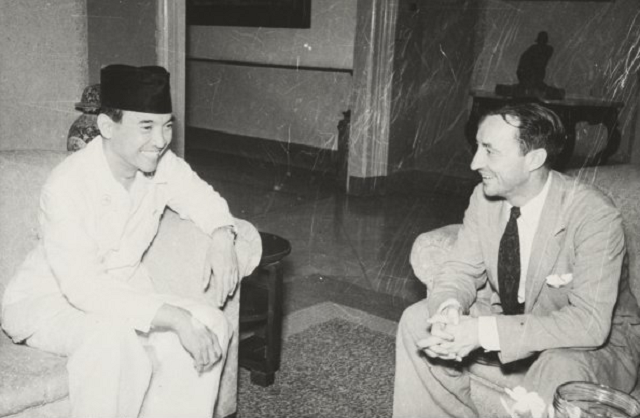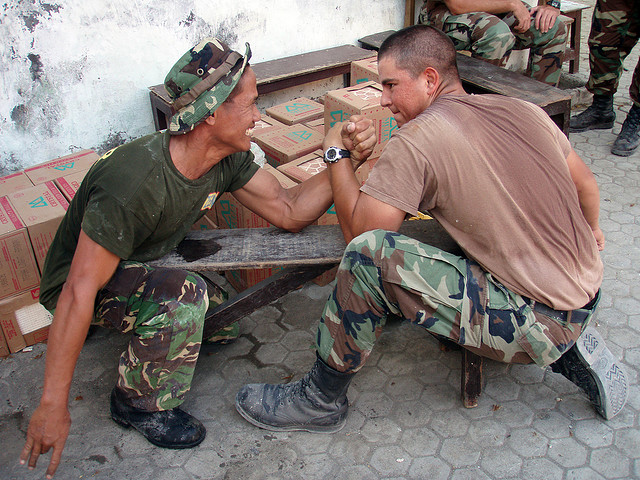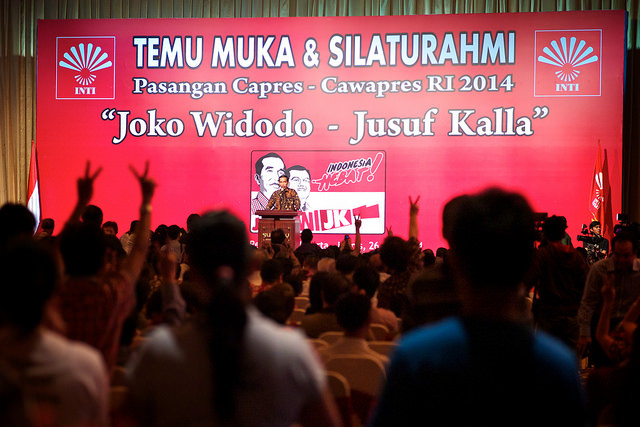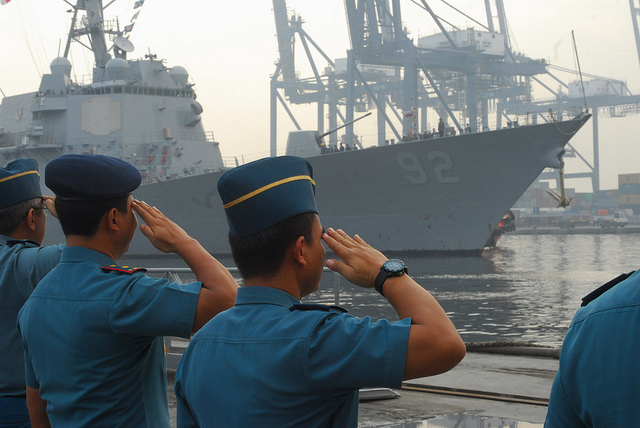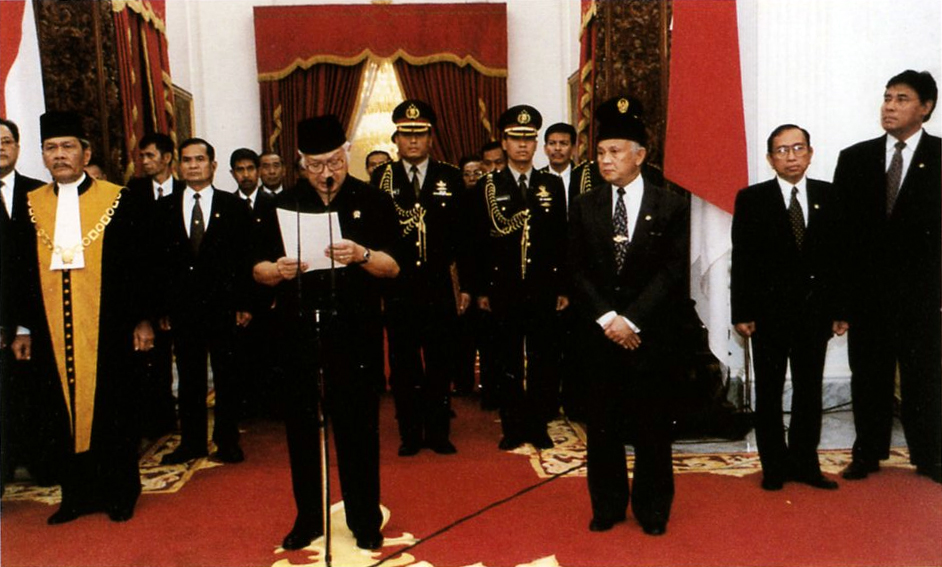The Indonesian economy: dangers ahead
Indonesia’s economic slowdown seems to be going from bad to worse with economists and business leaders blaming a lack of confidence in Joko Widodo government’s policies as much as plunging exports and a drop in domestic consumption for the deepening malaise.
Economic nationalism has become an impediment to economic growth. Indeed, the President’s criticism of international financial institutions at April’s Asia-Africa Conference in Bandung may have pleased the nationalists, but it will do nothing to attract foreign investment.
Starting from an ambitious 5.8% under the Yudhoyono administration, government and World Bank annual economic growth projections for Indonesia are now down to 5.2–5.3%, with expectations that they’ll drop further in coming months.
Based on weaker-than-expected first quarter of 4.7%, the International Monetary Fund (IMF) has already downgraded its full-year growth forecast to that level, the lowest since the 4.5% recorded in 2009 in the wake of the global recession.
Five international institutions also see annual growth at below 5%, ranging from 4.9% for Goldman Sachs to 4.4% for JPMorgan, with Indonesia facing a combination of a terms-of-trade shock and a potential tightening in external financing conditions.
Hurt by low commodity prices and a slowdown in China, exports in May dropped by 15.2% year-on-year, and nearly double the previous month’s figures. While there was still a trade surplus for the sixth straight month, it was because imports fell by 21%—similar to the 22.3% drop recorded in April.
Retail spending may be holding up for now, but high interest rates have undermined Indonesians’ purchasing power, with May’s statistics revealing another sharp fall in car and motorcycle sales.
Lower cement consumption over the past five months is yet another sign of declining economic activity, despite the fact that Jakarta is now in the throes of the biggest infrastructure building boom of the past two decades.
Bank Indonesia is committed to high interest rates to keep inflation and the current account deficit in check and also to limit capital outflows ahead of the ever-present fear of a further monetary tightening by United States and European financial regulators.
Widodo’s political honeymoon has been shorter than expected because of his rift with Indonesian Democratic Party for Struggle leader Megawati Sukarnoputri and his inability to stop conflict between the police and the Anti-Corruption Commission (KPK).
But while he may have managed to partially repair his relationship with the overbearing matriarch, at least until a pending Cabinet reshuffle, critics are now fully focused on the economy, complaining about a lack of strategic vision and policy coordination.
Ministers often pull in different directions. There’s no better example of this than the way the Investment Coordinating Board (BKPM) is trying to attract much-needed foreign investment, while the Manpower Ministry is making it increasingly difficult for foreigners to obtain work permits.
Widodo’s bold move to remove fuel subsidies late last year has now raised concern over the way the Government has failed to manage global oil price fluctuations and to educate Indonesians over how the world market works.
The savings resulting from the price hike were pumped into this year’s US$23.2 billion infrastructure program, but spending—the bugbear of all Indonesian governments—was sluggish in the first quarter and is showing few signs of picking up in the second quarter either.
Some of the oil windfall may also have to be diverted to shore up what the World Bank predicts could be a Rp 282 trillion shortfall in total state revenue. That’s because the Rp 1,295 trillion (US$98.8 billion) taxation target—a whopping 30% increase over last year—has always looked too ambitious for a country with a tax-to-GDP ratio of only 11%.
More so because efforts to broaden the tax base don’t appear to be making any ground. Revenue collection in the first three months was the lowest in two years as the economic slowdown impacted on the earnings of many of Indonesia’s biggest companies, particularly in the palm oil sector.
International investors are backing off. One major Indonesian telecommunications firm on a recent roadshow through Singapore, Hong Kong and London found commitments it thought it had locked up two weeks before suddenly disappear overnight.
One former economic minister believes that as important as it may be to raise growth in the long-term, Widodo’s single-minded focus on infrastructure is a mistake and that what is now required are pump-priming measures to get the economy moving again.
The Government may be listening. This week it’s introduced tax breaks for companies whose expansion plans will create jobs and make significant contributions to exports. The same will apply to firms that re-invest their earnings in Indonesia.
Finance Minister Bambang Brodjonegoro is also relaxing down-payment restrictions on cars and property, and abolishing or reducing the luxury tax on a range of home appliances and other upscale items.
But a lot more than that will have to be done in coordinating policies and restoring confidence among foreign and local investors for the economy to get back on track and remove the gloom that has descended over Indonesia’s business community.

